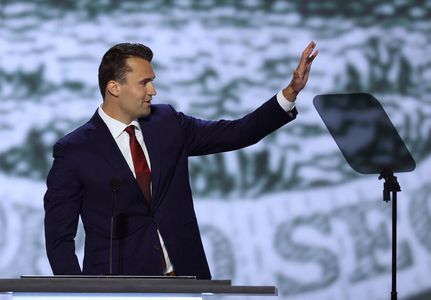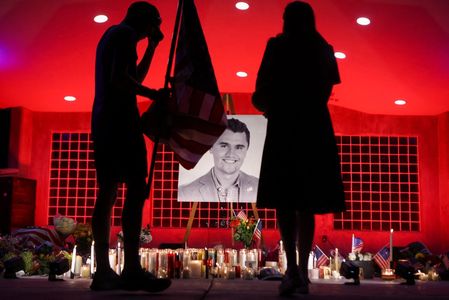The incursion of Russian drones into Polish airspace this week represented a serious extension of Putin’s war in Ukraine into NATO territory. The panel discusses what this means for Europe and President Trump.
Clip: What Russia’s drone incursion into Poland means for NATO and Trump
Sep. 12, 2025 AT 8:57 p.m. EDT
TRANSCRIPT
Notice: Transcripts are machine and human generated and lightly edited for accuracy. They may contain errors.
Jeffrey Goldberg: Yes. There's -- you're not going to believe what I'm about to do here, but I'm going to pivot to the subject of World War III and tell you that we have two minutes to talk about it, but the other news of the week or another bit of quite dramatic news was that Russian drones essentially invaded Polish airspace. The Poles don't think it was a Russian accident.
Peter, quickly, how bad was this? What do we have to worry about?
Peter Baker: The Kirk thing obviously has sucked all the oxygen out of the room, but this is a huge thing, right, because this is the first time in a very serious way that we have seen the war in Ukraine extend into NATO territory because some of these drones were shot down by NATO planes.
Jeffrey Goldberg: Right.
Peter Baker: That's a very serious step down that escalatory ladder people have been afraid about for a long time. And what does it tell us about Putin? What is he willing to do? He's certainly not willing to make peace the way we, you know, were told just a few weeks ago.
Jeffrey Goldberg: Right. Tom, you're a Russia expert, a lot of years at the Naval War College studying Russian tactics. Mistake, not a mistake?
Tom Nichols: No. He's testing.
Jeffrey Goldberg: He's pushing?
Tom Nichols: He's definitely pushing.
And, you know, the Russian reaction when the Poles said this was no accident, they said, well, they're not ours. And if they were ours, well, we're willing to talk about it with the Poles. Well, if they're not yours, why are you willing to talk about it?
Jeffrey Goldberg: Well, whose were they?
Tom Nichols: Then whose were they? And Belarus, by the way, at least one senior Polish military official thinks this was a joint Russia-Belarus operation because some of those drones came from Belarus. So, if it was a mistake or if they were lost, they went the long way around to get lost.
This is Putin saying, I am willing to risk escalation. I don't care. And you -- more importantly, he's saying NATO and President Trump, you don't really have the guts to deal with this.
Jeffrey Goldberg: Susan, do you think Trump is up to the task of confronting Russia on this incursion?
Susan Glasser: I think that's already been asked and answered, Jeff. Donald Trump said -- just today, he said, well, this is primarily Europe's problem. So, if this was a test that Vladimir Putin had to see what the response of the United States was, he got his answer. The answer was essentially close to nothing.
And that is very worrisome if you are Europe right now and you understand that you actually need an enormous military buildup in order to compensate for an America that has gone missing. And I think that's what we're looking at right now is an America that guaranteed Europe's security and has gone missing when the security is called upon to be there.
Jeffrey Goldberg: Well, we have a lot to talk about and we'll be talking next week about these subjects, but we're going to have to leave it there for now. I want to thank our guests for joining me, and I want to thank you at home for watching us.
FROM THIS EPISODE


Clip: Charlie Kirk’s assassination raises questions about escalating political violence


Full Episode: Washington Week with The Atlantic full episode, 9/12/25

© 1996 - 2026 WETA. All Rights Reserved.
PBS is a 501(c)(3) not-for-profit organization
